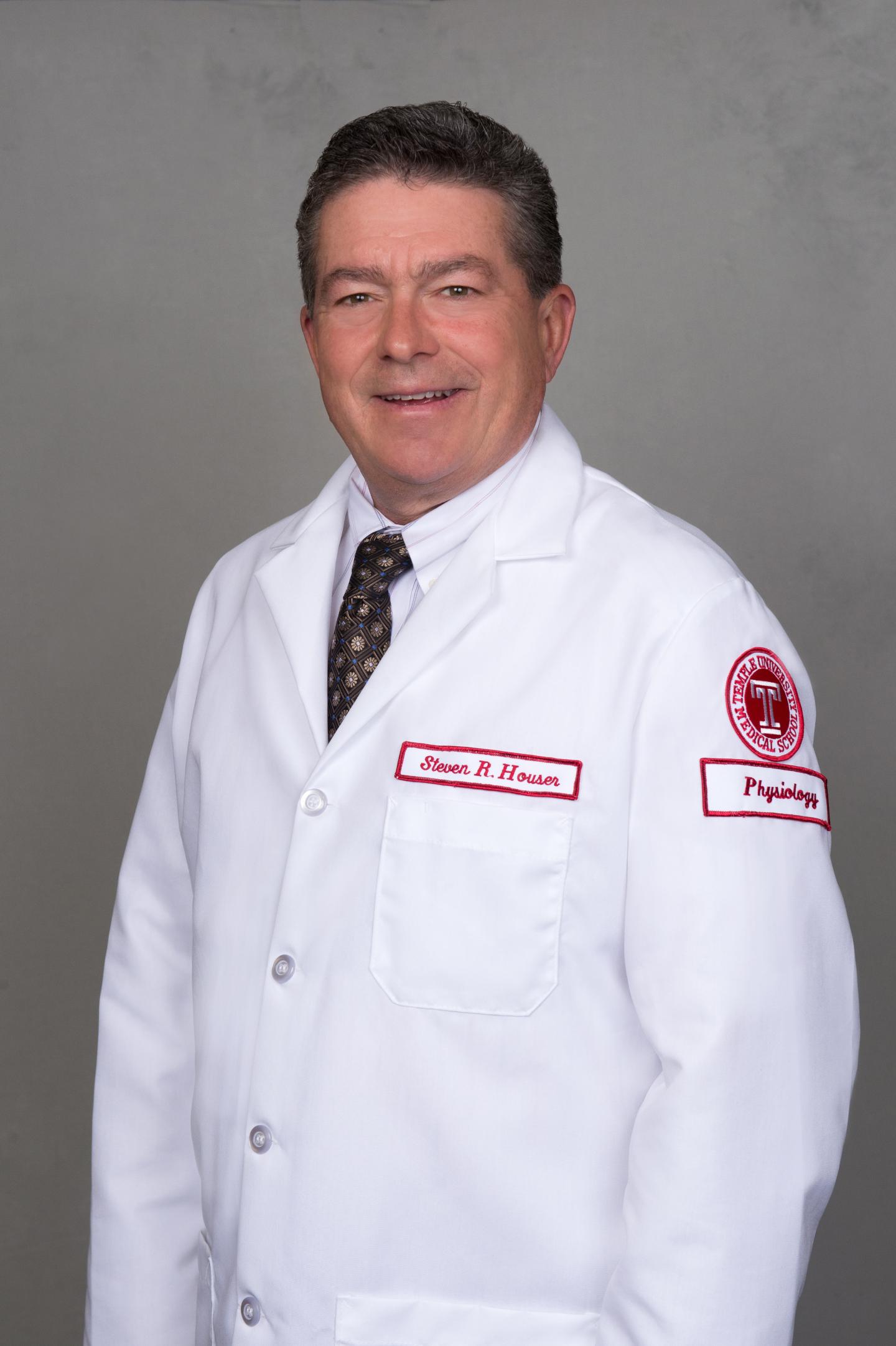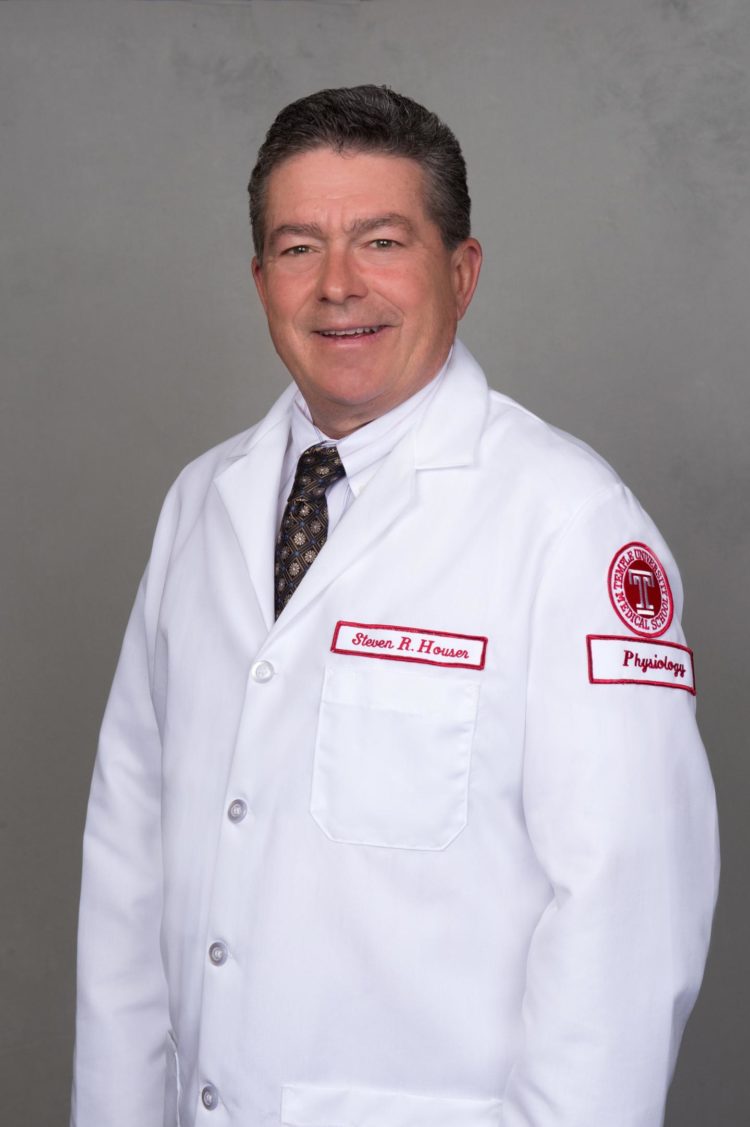
Credit: Lewis Katz School of Medicine at Temple University
(Philadelphia, PA) – When it comes to finding new treatments for disease, reinventing the wheel is not always necessary – drugs already in use for other conditions may do the job. And if it turns out that a pre-existing drug works, getting it approved for the treatment of another disease can happen much more quickly than for entirely new drugs never previously tested in people.
This fast-tracking approach may now prove valuable – and potentially life-saving – for patients with a common form of heart failure known as heart failure with preserved ejection fraction (HFpEF). Many patients with HFpEF feel fine at rest but experience shortness of breath upon physical exertion because their sick heart struggles to pump enough blood to meet the body’s needs. HFpEF usually worsens over time, leading to major declines in quality of life, and often death.
Thanks to new research by scientists at the Lewis Katz School of Medicine at Temple University (LKSOM), however, a drug capable of reversing HFpEF may soon be available. The researchers show that a drug already approved for the treatment of some forms of cancer can reverse HFpEF symptoms and improve the heart’s ability to pump blood in an HFpEF animal model.
“Although many people suffer from HFpEF, there are currently no FDA-approved therapies available for the problem,” explained Steven Houser, PhD, FAHA, Senior Associate Dean of Research, Vera J. Goodfriend Endowed Chair of Cardiovascular Research, and Professor of Physiology and Medicine at the Cardiovascular Research Center at LKSOM. Dr. Houser is the senior investigator on the new study, which was published in the journal Science Translational Medicine.
“We know from previous research that heart cells from patients with HFpEF have abnormalities in the genes that are being activated as well as in the function of the proteins that they encode,” Dr. Houser said. “The alterations in gene expression and protein activity in these cells involve a group of enzymes known as histone deacetylases (HDACs). Drugs that block HDAC activity have already been developed for other diseases, including cancer.”
At the suggestion of collaborator Timothy A. McKinsey, PhD, LaConte Chair in Cardiovascular Research, Professor of Medicine, Associate Cardiology Division Head for Translational Research, and Director of the Consortium for Fibrosis Research & Translation (CFReT) at the University of Colorado Anschutz Medical Campus, the Houser and McKinsey teams decided to investigate the effects of an HDAC inhibitor known as SAHA on animals with HFpEF. SAHA, marketed under the name Zolinza, is currently approved for the treatment of a form of cancer known as cutaneous T-cell lymphoma.
The Houser and McKinsey teams tested SAHA in an HFpEF model in which animals progressively developed typical signs of disease, including loss of exercise tolerance and shortness of breath. The animals also experienced tissue changes similar to those that occur in humans with HFpEF, most notably heart remodeling. Heart remodeling in HFpEF characteristically involves hypertrophy, or enlargement and thickening, of the left ventricle, which is the main pump that pushes oxygen-rich blood into the aorta and through the body. Hypertrophy is one way the heart attempts to respond to chronic cardiovascular problems, such as high blood pressure.
Following treatment with SAHA, HFpEF animals showed amazing improvements. In particular, hypertrophy of the left ventricle was significantly reduced in treated compared to untreated animals. The left ventricle was also much more relaxed in treated animals, enabling the heart to fill and pump more effectively and leading to overall improvements in heart structure and function.
“The remarkable thing is that this therapy could be tested in HFpEF patients today,” Dr. Houser said.
The Houser and McKinsey teams now plan to investigate what specifically makes heart cells in HFpEF abnormal. “The cells are still alive but are working abnormally. If we can figure out why, we may be able to find a more targeted approached to develop entirely new treatments for HFpEF,” Dr. Houser said.
###
Other researchers contributing to the study include Markus Wallner, Deborah M. Eaton, Remus M. Berretta, Giulia Borghetti, and Sadia Mohsin, Cardiovascular Research Center, LKSOM; Peter P. Rainer, Dirk von Lewinski, Heiko Bugger, and Andreas Zirlik, Division of Cardiology, Medical University of Graz, Austria; Sandra Blass and Wolfgang F. Graier, Molecular Biology and Biochemistry, Gottfried Schatz Research Center, Medical University of Graz; Laura Liesinger, Matthias Schittmayer, Juergen Gindlhuber, and Ruth Birner-Gruenberger at the Molecular Biology and Biochemistry, Gottfried Schatz Research Center, the Institute of Pathology, Diagnostic and Research Center for Molecular Biomedicine, Medical University of Graz, and the Omics Center Graz, BioTechMed-Graz; Jichuan Wu, Sandy T. Baker, and Marla R. Wolfson at the CENTRe: Consortium for Environmental and Neonatal Therapeutics Research, LKSOM, and the Department of Physiology, Department of Thoracic Medicine and Surgery, Pediatrics, Center for Inflammation, Translational and Clinical Lung Research, LKSOM; Mark Y. Jeong, Ying H. Lin, and Timothy A. McKinsey, Department of Medicine, Division of Cardiology and Consortium for Fibrosis Research & Translation, University of Colorado Anschutz Medical Campus; Huaqing Zhao, Department of Clinical Sciences, LKSOM; and Jessica Pfleger, Center for Translational Medicine, Department of Pharmacology, LKSOM.
The research was funded in part by the National Institutes of Health, Department of Defense/Office of Naval Research, and the American Heart Association.
Media Contact
Jeremy Walter
[email protected]
267-838-0398
Original Source
https:/
Related Journal Article
http://dx.





